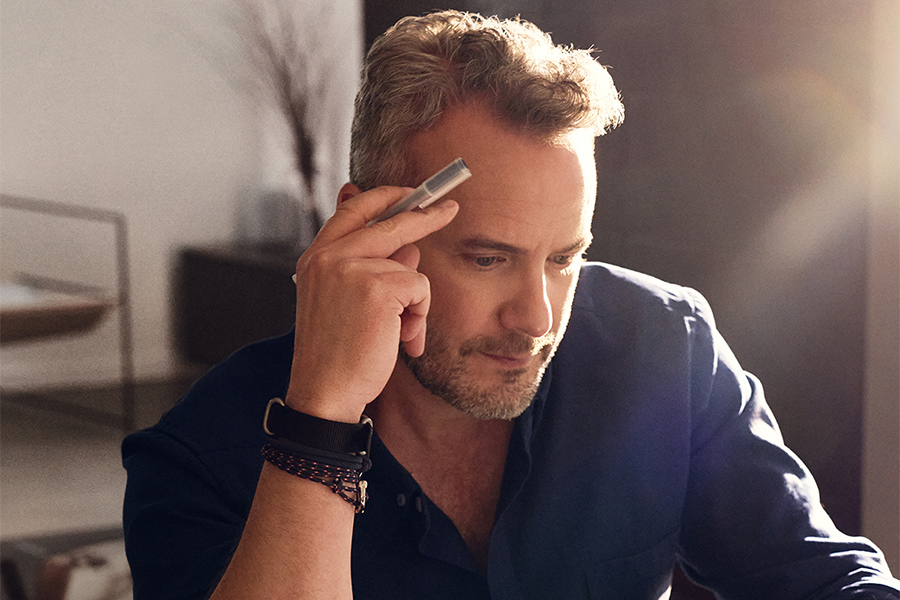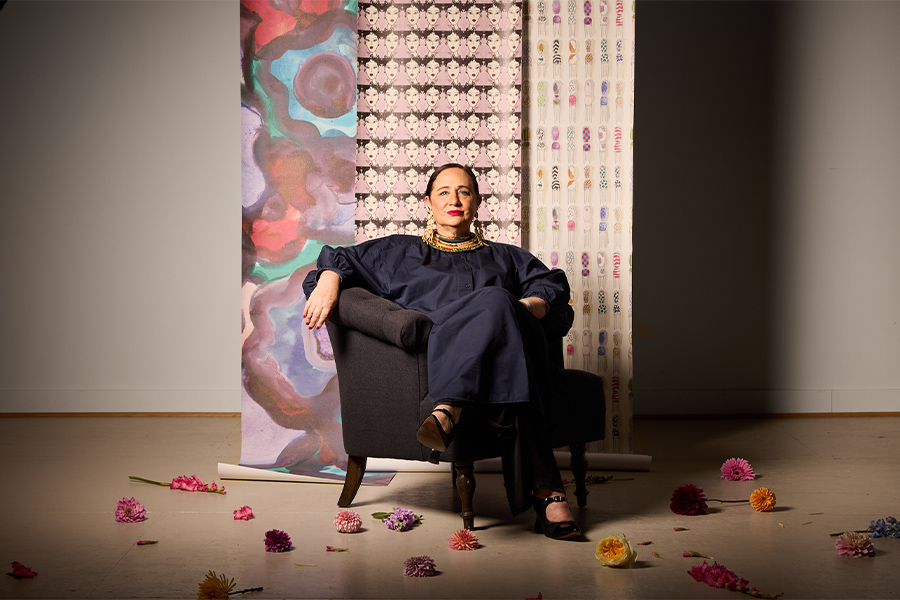Growing up in Greenbelt, Maryland, Amber Eley was always sketching, which led her to study architecture at Philadelphia University.
In 2010, after spending her early career focused on high-end residential architecture, she pivoted to hospitality, joining Host Hotels & Resorts, where her first project—organizing a large-scale supplier meeting—helped her forge lasting connections in the industry.
Today, Eley’s architectural background has been integral to the multimillion-dollar projects she leads for Host.
Did you always want to be a designer?
Amber Eley: I loved to draw as a kid—everything from landscapes to houses to clothing designs. Both of my parents were in the medical field, which led a lot of people to assume I would follow suit—and I considered it. But I knew I wanted to end up in design. I was torn between fashion and architecture. Ironically, I attended Philadelphia University, which is known for fashion design and textile engineering, so I was able to see firsthand how fashion inspires architecture and interiors.
I was also fortunate to study abroad in Italy in 2003, where I attended the American University of Rome and traveled all over Europe to see some of the world’s greatest architecture. After I graduated, I decided to go into high-end residential design because I wanted to have more flexibility to be creative rather than doing more standardized or program work. My first job out of college was at a small residential architecture firm in Frederick, Maryland called ARDS.

A lighting installation adds an ambient glow to the restaurant at the Hyatt Regency Washington on Capitol Hill in DC by Parker-Torres Design
Early professional lessons?
AE: I learned a very important lesson from one of my college professors—that architecture is primarily a man’s field in which women will not be taken seriously, at least not initially. [During a third-year studio class], the men started out with an A average, and their job was to maintain it. All the women started out with a C average, and our job was to work our way up to an A.
While it certainly seemed unfair at the time, it proved to be the reality of working in the field as a woman, and even more so as a woman of color. This was not a new concept to me—growing up in a Black household, you’re taught early on that you must work twice as hard to earn half as much; I’d always approached architecture with that mindset. Many times, I walked onto construction sites where contractors asked me if I was lost or they could help me with something. There was nothing more satisfying than responding that I was the architect on the project and was in fact there to help them.
What led you to Host?
AE: When the economy crashed in late 2008, my architecture firm of six people was suddenly down to two: me and my boss. We did everything we could to keep the business open, but there wasn’t any work available. I spent the next nine months looking for jobs in architecture, when one day my cousin sent me a link to apply for a job in design and construction at this company called Host Hotels & Resorts.
I had never heard of Host and was not the least bit familiar with the hospitality industry. After three interviews (and being told by anyone and everyone at the company that this was not an architecture job and that I should manage my expectations), I made the leap into hospitality. This was a whole new world, and I had a lot to learn. What I find most interesting about my job is getting to work with different designers and learn their styles. It’s so much fun to see others transform a space in ways I perhaps wouldn’t have thought of.

Greige Goods Studio crafted the refined Spotted Zebra restaurant at the Washington Marriott at Metro Center in DC
Best compliment you’ve received?
AE: At the end of 2022, I was diagnosed with breast cancer. I went through cancer treatment in early 2023 and am happy to say that I am cancer free. I continued to work, probably harder than I’ve ever worked before. I hope I’ve shown others that you don’t know what you can survive until you have to do it. Having a positive attitude (even when you don’t want to) is truly half the battle.
More than anything, the best compliment I received was from multiple women who let me know that after hearing about my diagnosis, they scheduled their first mammograms and will continue to go annually to get checked. I’m thankful that my situation has helped at least one person take the time to focus on their own health and realize that early detection is the best way to save lives.
Do you collect anything?
AE: Tattoos. I currently have seven with four already planned. I’m working my way up to a full sleeve.

MARKZEFF refreshed the lobby at the Hotel Van Zandt in Austin with antique brass and leather details
Best piece of advice you’ve received?
AE: ‘No’ is a complete sentence. As a people pleaser, learning that I was allowed to say no without explaining myself was a difficult concept for me to accept. But once I turned 40, a switch inside me flipped. I’m prioritizing myself for the first time, and I’m allowed to do just that.
If you had to pick a different career, what would you want to do?
AE: Part of me would want to go into fashion or beauty and work for Rihanna. Sign me up for anything Fenty! If I were to leave hospitality, I might switch to the medical field. We joke that our projects are important, but we’re not saving lives. I could do something that saves lives.


